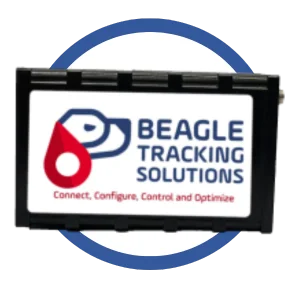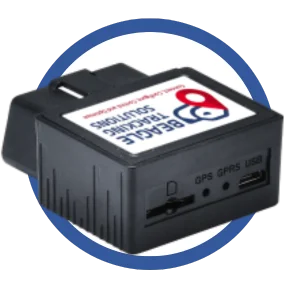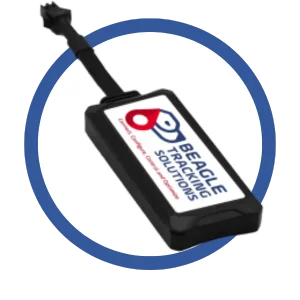GPS tracking is important for individuals and organizations. It helps with navigation, fleet monitoring, asset security, and the safety of loved ones. It has transformed how we locate and manage movements in real-time. GPS tracking technology offers precision, reliability, and versatility, making logistics, transportation, personal safety, and law enforcement essential.
What is GPS Tracking?
GPS tracking is a process that uses the Global Positioning System to track the position of an object, vehicle, or person. The technology interfaces with satellites, enabling GPS devices to track their location and provide real-time information to users. GPS tracker serve multiple functions, such as navigation, vehicle surveillance, asset management, and personal security. They are a fundamental component of modern location-based services that provide accurate location information.
How GPS Tracking Works
Signal Transmission
GPS satellites send signals containing their location and the time they were transmitted.
Signal Reception
The GPS tracker device obtains signals from multiple satellites. A minimum of four satellites is required to determine a location accurately.
Data Transmission
The calculated location data is transmitted to an associated system, such as a mobile application or web dashboard, utilizing cellular networks, satellite communication, or internet connectivity.
User Access
Users can access the location data in real-time, along with route history, speed, and movement details.
Benefits of GPS Tracking
Enhanced Safety and Security with GPS Tracking
It provides real-time location updates and emergency alerts to guarantee the protection of loved ones, vehicles, and valuable assets.
Improved Efficiency
Businesses can use GPS tracking systems to enhance delivery schedules, optimize routes, and reduce idle time.
Cost Savings
Fleet management systems reduce fuel costs, monitor driver behavior, and optimize vehicle usage, resulting in significant savings.
GPS Tracking Safety Measures
GPS tracker allows users to identify stolen vehicles, cargo, or assets, enhancing recovery rates and minimizing financial losses.
Enhanced Accountability
For businesses, GPS tracker guarantees that employees and drivers are held accountable by monitoring their travel patterns and activities.
GPS Tracking Accurate Data
GPS trackers generate comprehensive reports on routes, speed, and mileage, enabling businesses to make data-driven decisions.
Good Customer Service
Logistics companies can enhance customer satisfaction by offering real-time tracking updates and accurate delivery times.
Tips for Choosing the Best GPS Tracking
Purpose
Identify your specific needs, whether personal safety, vehicle tracking, or asset protection.
GPS Tracking Features
When selecting a GPS tracking system, consider features such as real-time tracking, geofencing, SOS alerts, and the capability to store previous data.
Battery Life
Choose a device with a battery life appropriate for your specific usage patterns.
GPS Tracking Subscription Plans
Look at other subscription plans and compare their prices and features if needed.
Durability
For outdoor or heavy-duty use, use waterproof and shock-resistant devices.
User-friendly Device
Ensure the device and its associated app or software are user-friendly.
Challenges and Limitations
Signal Interference
For incorrect position data, things like tall buildings, dense forests, and stormy weather can block GPS signals.
Battery Life
Portable GPS tracker operate on batteries, which may need frequent recharging based on usage and features.
Privacy Concerns
Tracking raises ethical and legal questions regarding consent and data security. It is essential to use GPS tracker responsibly and adhere to local laws.
Subscriptions
High-quality GPS trackers and their data plans can be costly, particularly for businesses with large fleets to manage.
Future of GPS Tracking
Integration with AI and IoT (Artificial intelligence and Internet of Things)
AI and the IoT are about to change the game for GPS tracker. With AI, you can spot trends, find better routes, and improve geofencing. Plus, IoT lets all these devices talk to each other effortlessly.
Advanced Mapping and AR
Augmented reality (AR) and GPS tracker could revolutionize navigation by overlaying real-time directions onto the physical environment.
Enhanced Accuracy with Global Navigation Satellite Systems
The advancement of GNSS, such as Galileo and BeiDou, enhances accuracy and reliability in GPS tracker.
Wearable Technology
Due to the popularity of smartphones and fitness trackers, wearable GPS devices are getting smaller and better. This makes tracking easier to obtain and use.
Sustainable Solutions
Future GPS devices may utilize solar-powered batteries and energy-efficient designs to enhance battery life and lessen environmental impact.
Conclusion
GPS tracking has revolutionized how individuals monitor, manage, and locate people, vehicles, and assets. Its applications range from personal safety to fleet management and logistics operations. GPS tracker offers real-time location data, enhances operational efficiency, and significantly improves security measures. Businesses and individuals benefit from GPS tracking systems’ accuracy, capacity, and reliability. As technology evolves, GPS tracker will continue to play an even more significant role in creating more innovative, safer, and more connected environments.
FAQ
Are GPS trackers waterproof?
Many GPS trackers are waterproof or water-resistant, making them ideal for outdoor or pet tracking. Always review the product specifications to confirm their durability.
What happens if a GPS tracker loses signal?
When a GPS tracker loses its satellite signal, it may store location data and upload it once restored. Some trackers use alternative methods, like cellular towers, for approximate locations.
How long does the battery of a GPS tracker last?
Battery life varies based on the device and its usage. Compact trackers may last a few days, while larger devices with advanced features can sometimes last weeks or months on a single charge.
Does GPS tracking work in remote areas?
Yes, satellite-based GPS trackers work in remote locations without cellular coverage, unlike cellular-dependent trackers.
Is GPS tracking legal?
Yes, but consent is required for personal tracking, and businesses must comply with privacy laws when tracking employees or assets.



